The Independent's journalism is supported by our readers. When you purchase through links on our site, we may earn commission. Why trust us?
National Allotments Week 2021: From rakes to wheelbarrows, these are the plot essentials you need
Whether it's a new hobby or you're an experienced gardener, it’s time to top up your kit
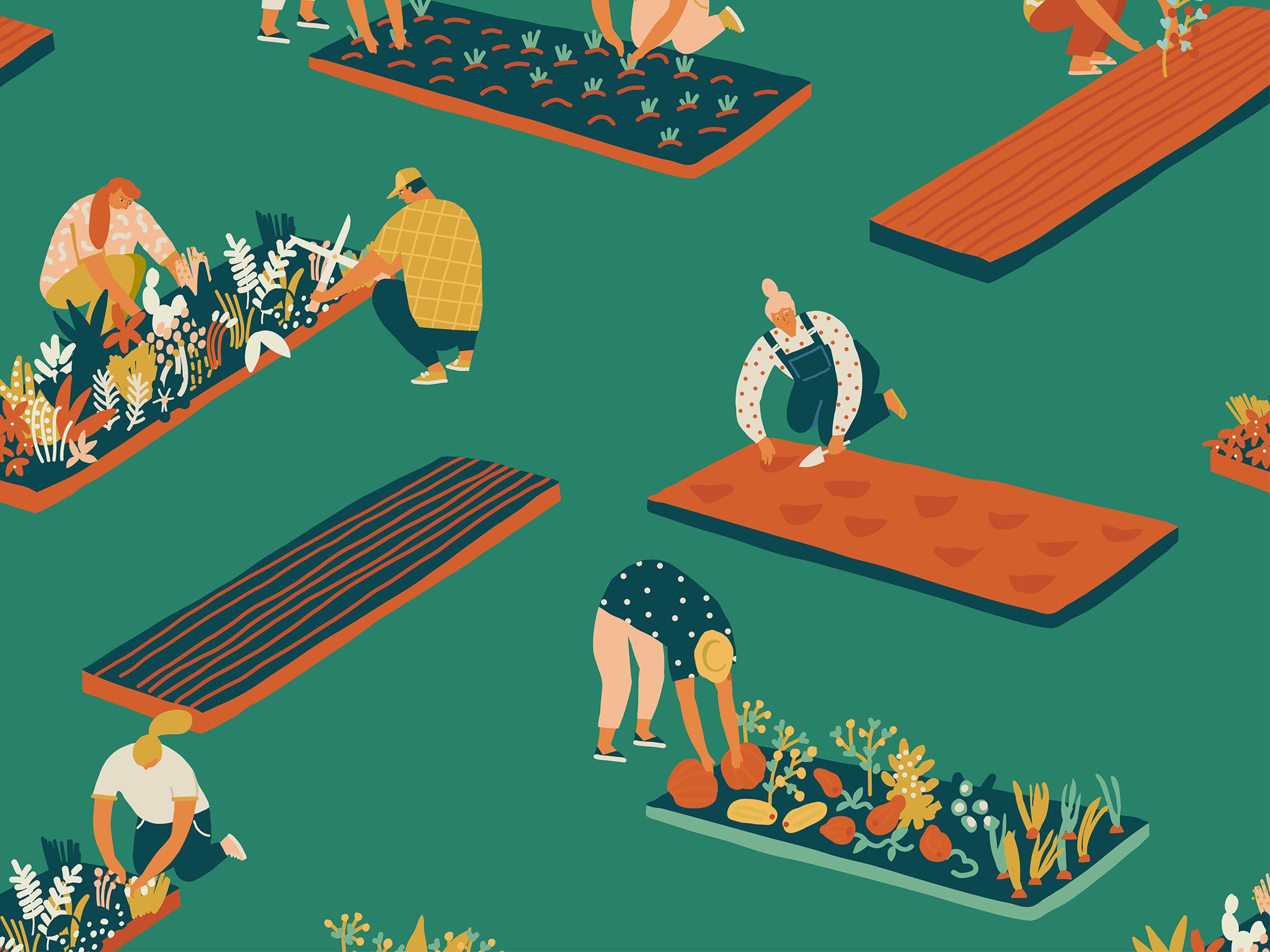
Your support helps us to tell the story
This election is still a dead heat, according to most polls. In a fight with such wafer-thin margins, we need reporters on the ground talking to the people Trump and Harris are courting. Your support allows us to keep sending journalists to the story.
The Independent is trusted by 27 million Americans from across the entire political spectrum every month. Unlike many other quality news outlets, we choose not to lock you out of our reporting and analysis with paywalls. But quality journalism must still be paid for.
Help us keep bring these critical stories to light. Your support makes all the difference.
You probably know that the gym is a good place to get healthy, but what about your local allotment? National Allotment Week, created by The National Allotment Society (NAS) in 2002, runs from 9–15 August and aims to spread the word that plots can keep us happy and fit.
Whether you want an allotment in order to be more self-sufficient and to grow your own food, or you’re hoping to get more involved in the local community, curating your own green space is a rewarding hobby, especially if you don’t have a garden.
The theme for 2021’s event is “plotting for the future”, and hopes to celebrate the sustainability of allotments.
Throughout the week there will also online events hosted on the NAS’s website, YouTube and Facebook platforms, celebrating the winners of the Virtual Allotment Show and broadcasting talks on plotting on a shoestring, composting, no-dig plotting and water use.
If you’re a new allotment owner, we’ve created a guide to the essentials you need for a bountiful harvest and the tools that will make your gardening endeavours much more efficient.
Read more:
Gloves
If you’re getting your hands dirty, make sure they're as protected as possible with a durable pair of gloves, that will not only keep soil from getting under your nails, but will protect them from rough surfaces, and help your grip if it's raining.
In our guide to the best gardening gloves, these Watson flextime workshop gloves (£14.99, Tinderandfix.com) came highly rated and earned the title of best buy.

Made from waterproof, goatskin leather, they left us impressed with their comfort and functionality.
Our reviewer said: “In use, these gloves are an absolute dream – you’ll forget you are wearing them, such is their comfort and flexibility. Some gloves are rendered shapeless and floppy after prolonged use, but the Flextimes form-fitting memory (afforded by the stretchy spandex back panel) ensures they literally fit like a glove every time you slip them on.”
Wheelbarrow
For heavy-duty jobs such as harvesting potatoes to bring home for dinner or getting rid of detritus, make sure you have a wheelbarrow to hand.
In our guide to the best wheelbarrows, we loved this Haemmerlin polypropylene pick up wheelbarrow (£100, Moleonline.com).
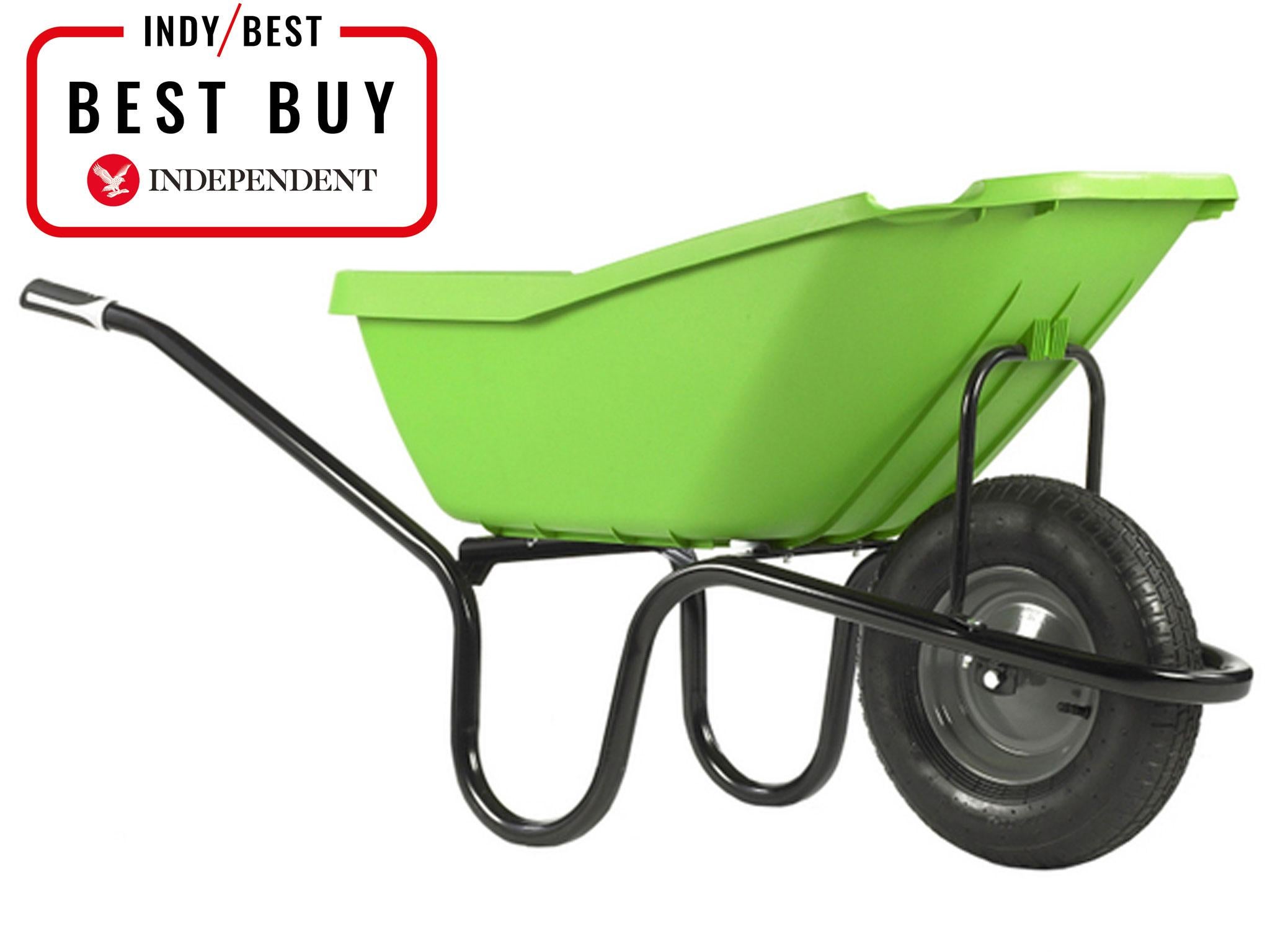
The large-capacity barrow zoomed through our cabbage patches with its vibrantly coloured, jumbo 110l pan.
Our reviewer said: “We were especially fond of the top tool notch that prevents rakes and whatnot from sliding around when the barrow is going full pelt around the garden. The handy tipper bar made it easy to hoist the pan and fling the barrow’s contents onto a willing compost heap or dung pile.”
Trowels
Tackle your green space with ease and efficiency with a good trowel, whether you’re re-potting seedlings, digging through soil or extracting roots.
Our favourite from our guide to the best garden trowels was this Burgon & Ball corona comfortgel trowel (£13.99, Burgonandball.com).
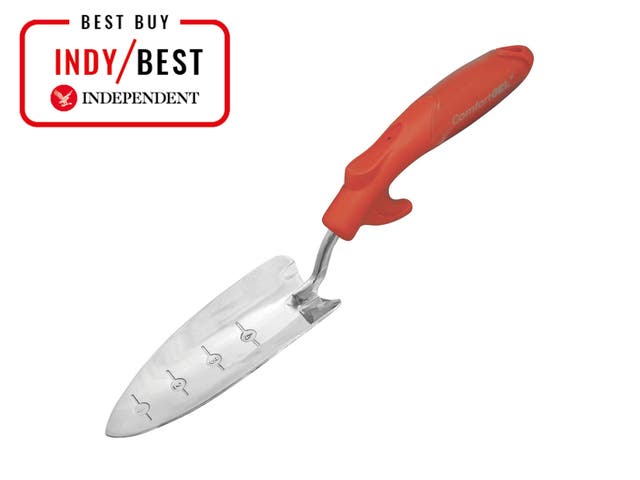
The cushioned handle did a stellar job at ensuring our wrists were ache-free after a strenuous digging session.
“Another feature worth highlighting is the ridge designed to prevent sweaty, soily hands from slipping in the direction of the shovel end – a simple but genius addition which allowed us to apply extra downward force. Believe it or not, it gets better – the shovel has engraved measurements and the narrow indent to the left of the handle can be used to cut material such as string,” said our reviewer.
Watering can
When tending to your greenery and flowers, a precise, stylish watering can ensure the soil soaks up enough water without making a mess or drowning seeds.
In our guide to the best watering cans for tending to both indoor and outdoor plants, we loved this Kent & Stowe watering can in deep violet (£19.99, Marshallsgarden.com).

Aside from the stunning shade, our reviewer found the 5l can to be the perfect size for pottering around the patio, and it wasn’t too heavy when it was full up.
“The rose screws on the end, so is not going to come off easily, and the water flow is even,” they said. “The two handles make for easy watering – the folding top handle is handy for carrying, while the side handle allows for great balance when pouring. It’s also a good price for such a stunning can.”
Weed hoe
Weeds can ruin a thriving green space, so make sure you keep an eye on them to save your harvest.
Simply run a hoe such as this Nejiri gama hoe (£15.20, Amazon.co.uk) over a bed or between rows of plants to kill weed seedlings.

The blade is made from hardened steel and it comes with a hanging loop on its wooden handle to easily stow it away when you’re finished with it.
Shears
If you don’t keep on top of new growth, shoots and tendrils, free-range foliage can make your allotment plot look unsightly pretty quickly. Regular pruning is essential.
Using the appropriate tools for the job, keep hedges in check and restrict unruly plants from taking over.
Our favourite shears from our best secateurs and shears guide were the Niwaki mainichi secateurs (£42, Niwaki.com).
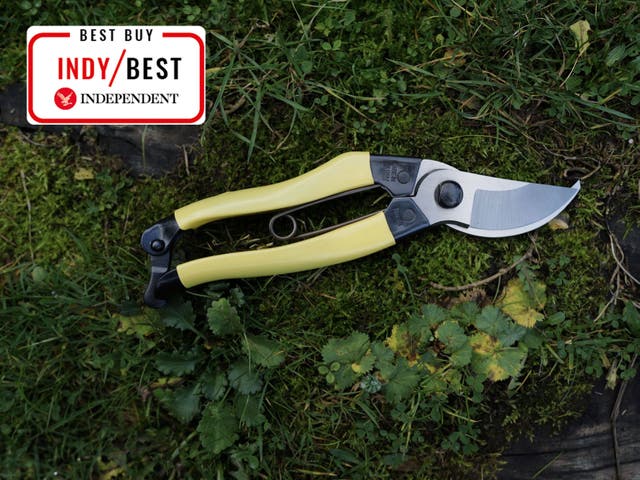
“Niwaki’s mainichi secateurs have become standard issue for millions of gardeners in Japan, and it’s easy to see why,” said our reviewer. “They have a classic design, a lovely clean action and an eye-catching simplicity. Between form and function, these were our all-round favourites – every gardener should have a pair.”
Spacing rule
Not all allotments are large plots, so if you’re limited on space, particularly if you live in a city, try this Burgon & Ball seed spacing rule (£21.14, Amazon.co.uk) for size.
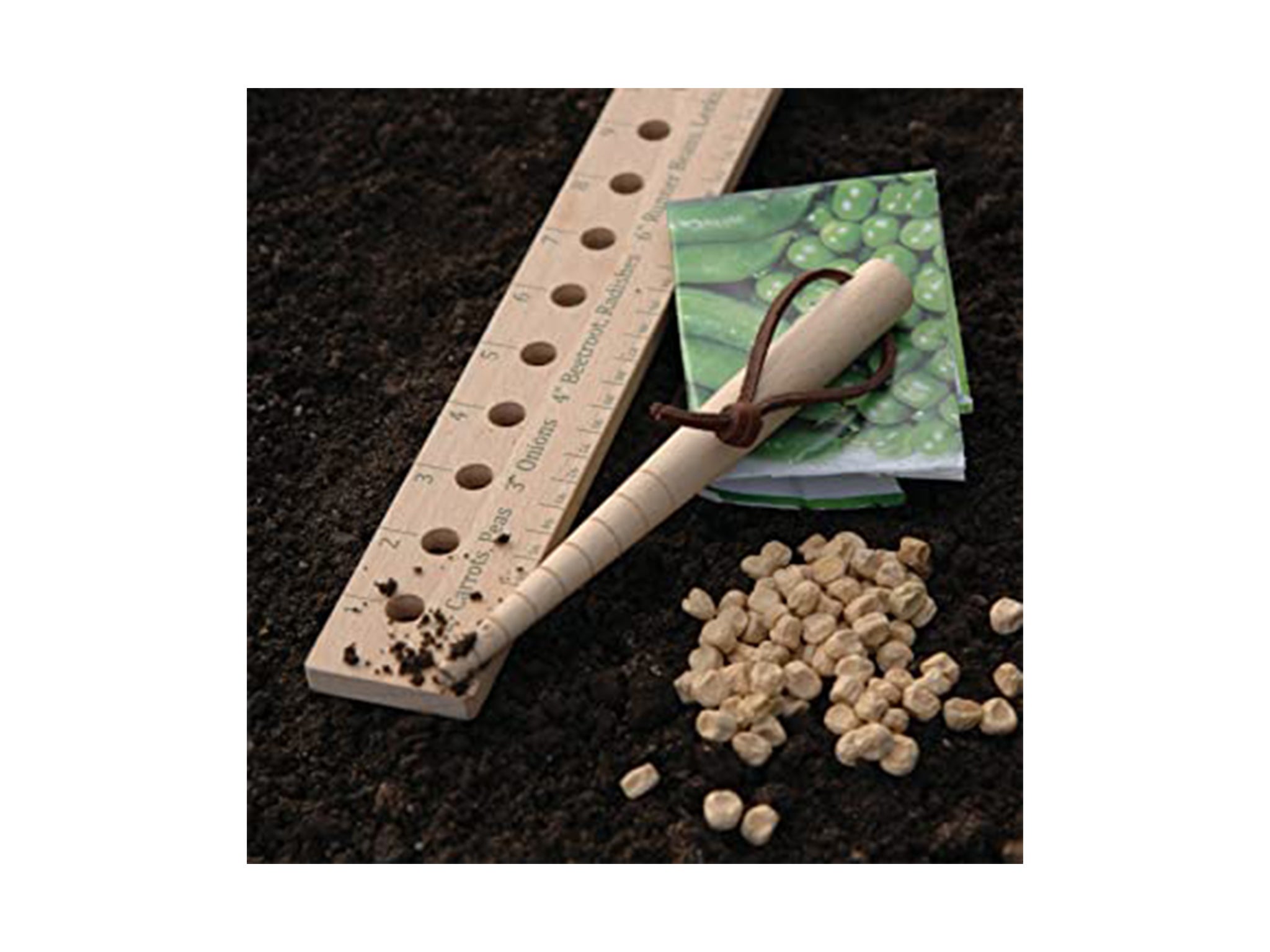
It’ll ensure your veg rows crop in regimental lines, and it’s inscribed with plant spacing and perforated with poke holes – perfect for a novice gardener. It’s made from beechwood and is a sturdy piece to add to your kit.
Plant labels
When seeds are planted straight into the ground, don't fall into the trap of forgetting what they are. The easiest way to keep track of progress is with a plant label.
These biodegradable blank wooden seed, herb and plant labels (£6.96, Amazon.co.uk) are big enough to write on and ink from pens won’t bleed out into an unreadable mess. They come in a set of 100.
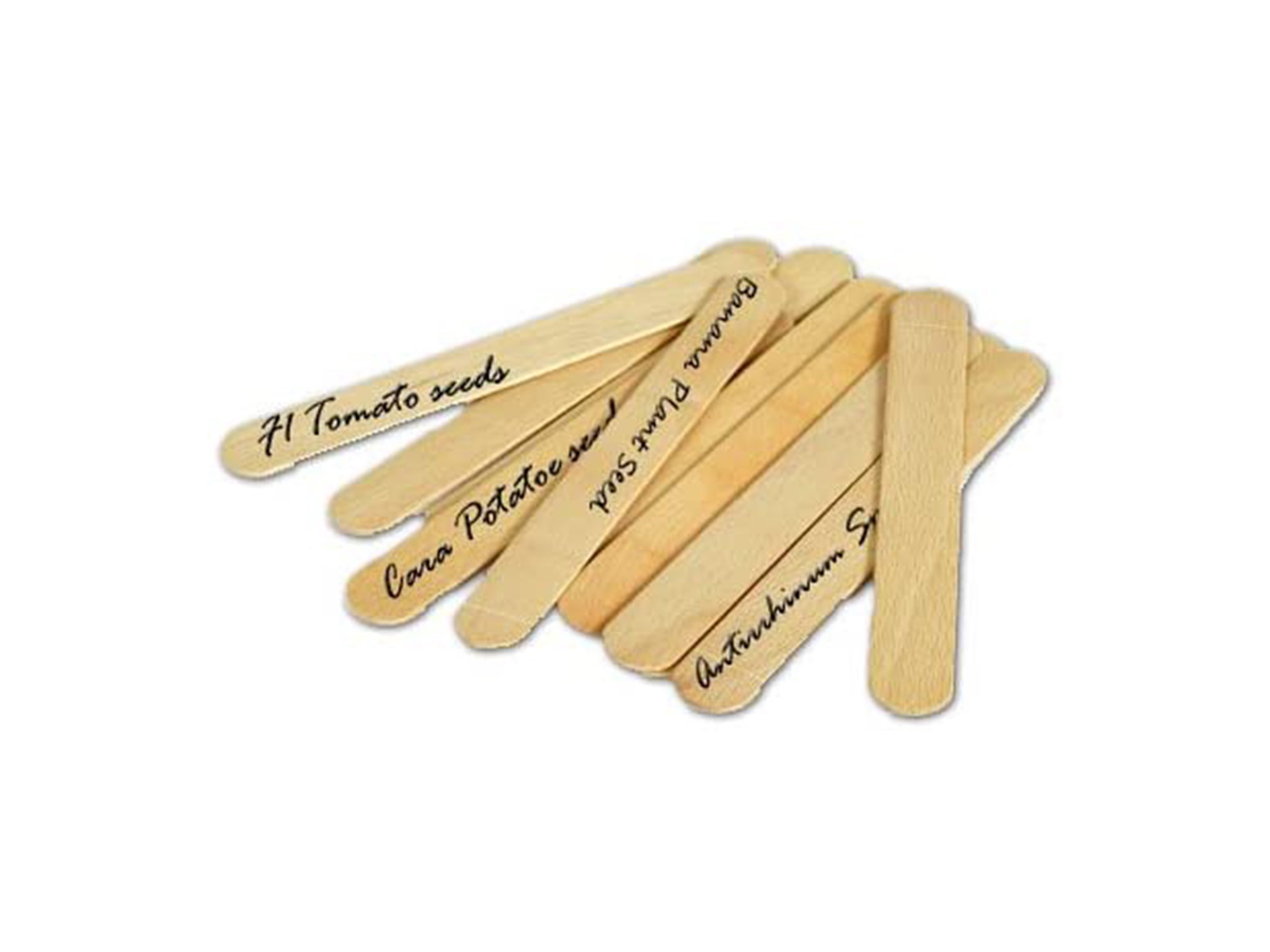
It’s also a small way to cut down on your plastic consumption.
Rake
More than just a tool for keeping your allotment neat and tidy, a rake also removes garden matter that can be a home for pests and will help prepare your soil for planting your seedlings.
Try this Bulldog evergreen garden rake (£19.58, Uktoolcentre.co.uk).
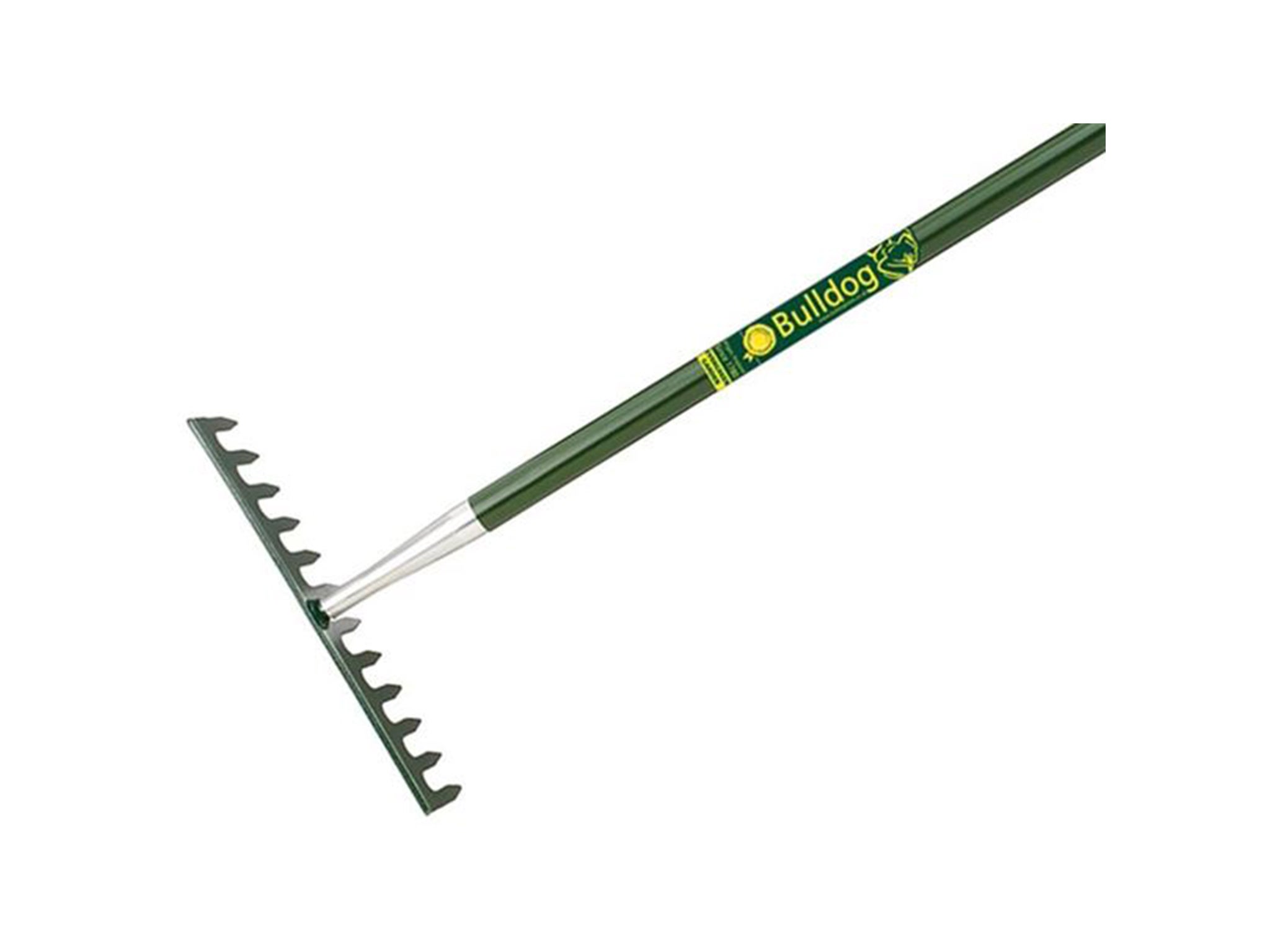
Its head is rust-resistant and it’s lightweight too so if you don’t have space to store it at your allotment, it won’t be a bother carrying it home.
Spade
To loosen the ground for planting and cut through soil, pick up this Spear & Jackson select carbon digging spade (£20, Homebase.co.uk).

It has a powder-coated head that’s scratch, rust and humidity-resistant and a soft grip that’ll allow you to comfortably dig at an angle.
Compost bin
For any organic waste from your allotment gardening, make sure you have a compost bin on hand. The resulting compost can help with your plants’ growth later on.
We love this Rowlinson allotment compost bin (£79.95, Harrodhorticultural.com) that's a stylish, space-saving way to contain waste that can hold approximately 429l.
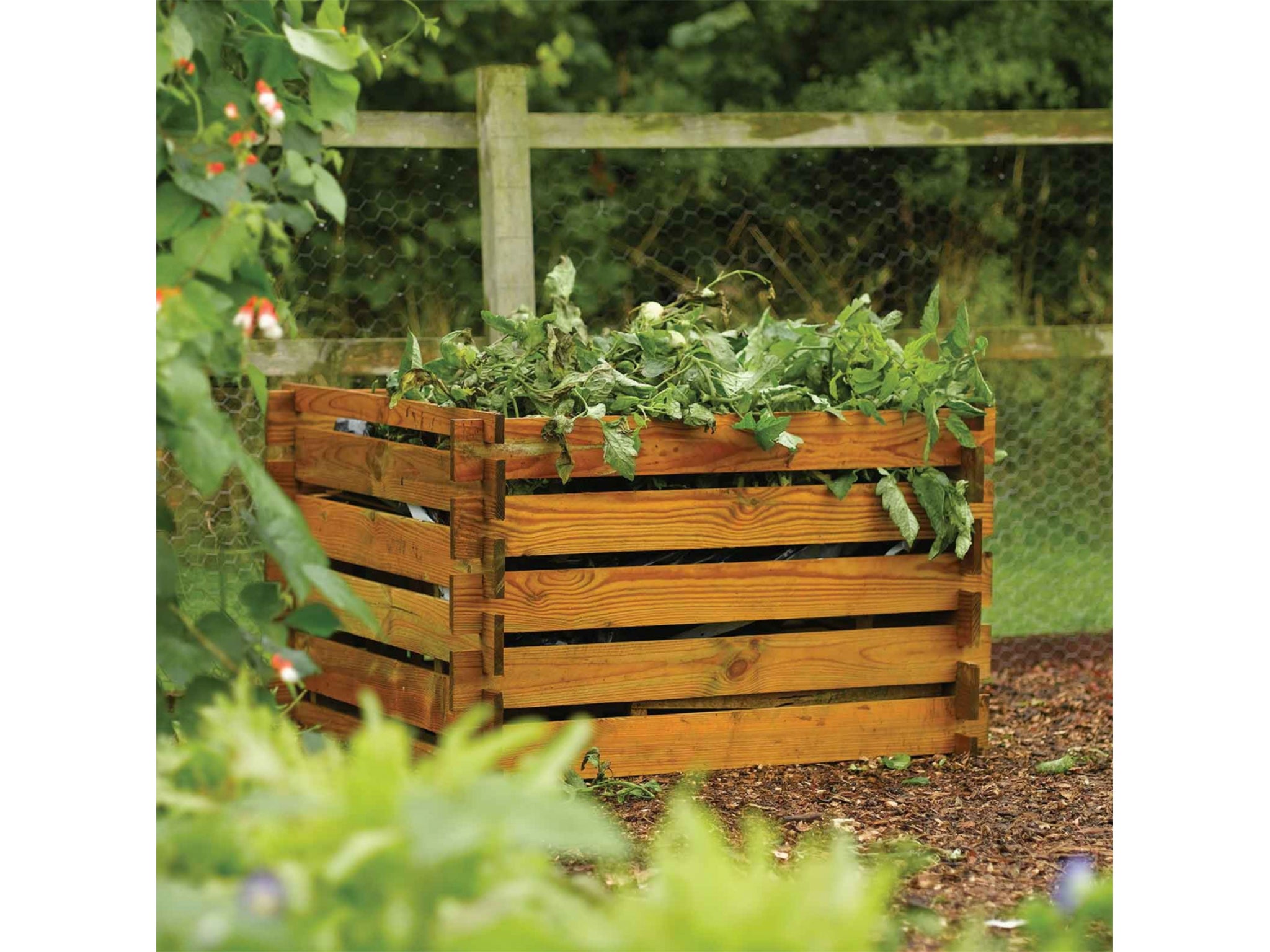
The timber planks, which can easily be assembled by slotting together, will withstand downpours and won’t rot, while the gaps between the wood ensure lots of healthy air circulation, to speed up the composting process.
Voucher codes
For the latest offers on gardening equipment and furniture, try the links below:
Enjoy plants, seeds and more delivered to your door with the best gardening subscription boxes